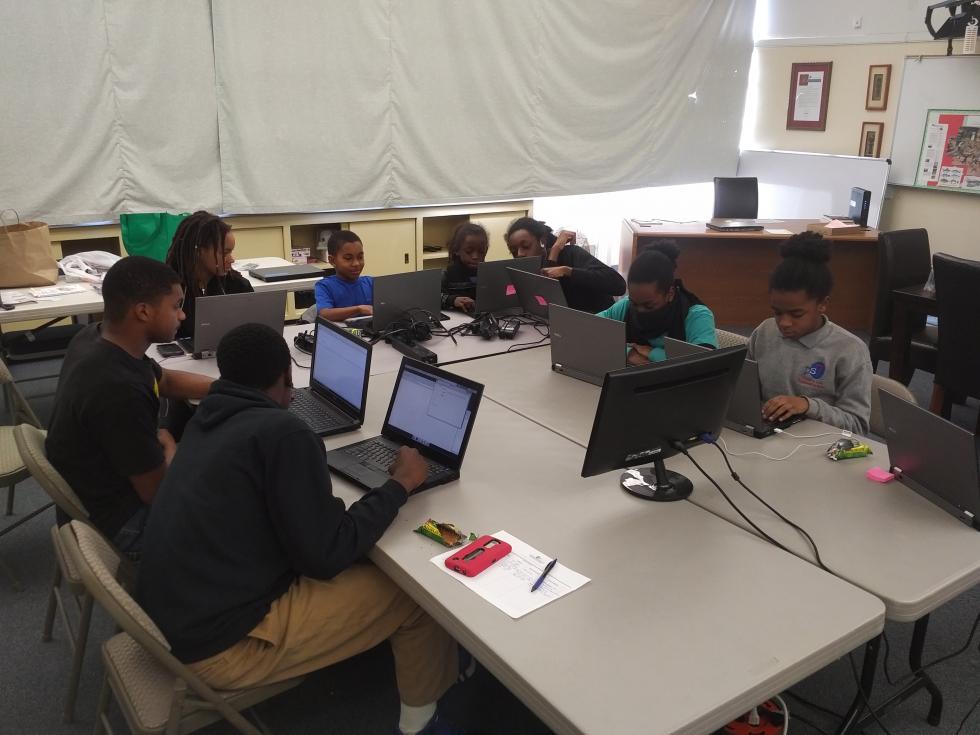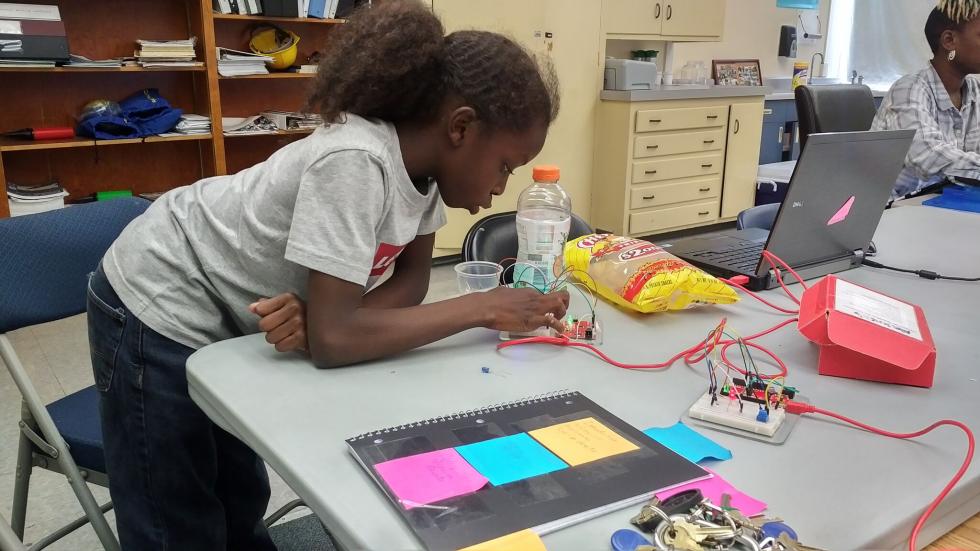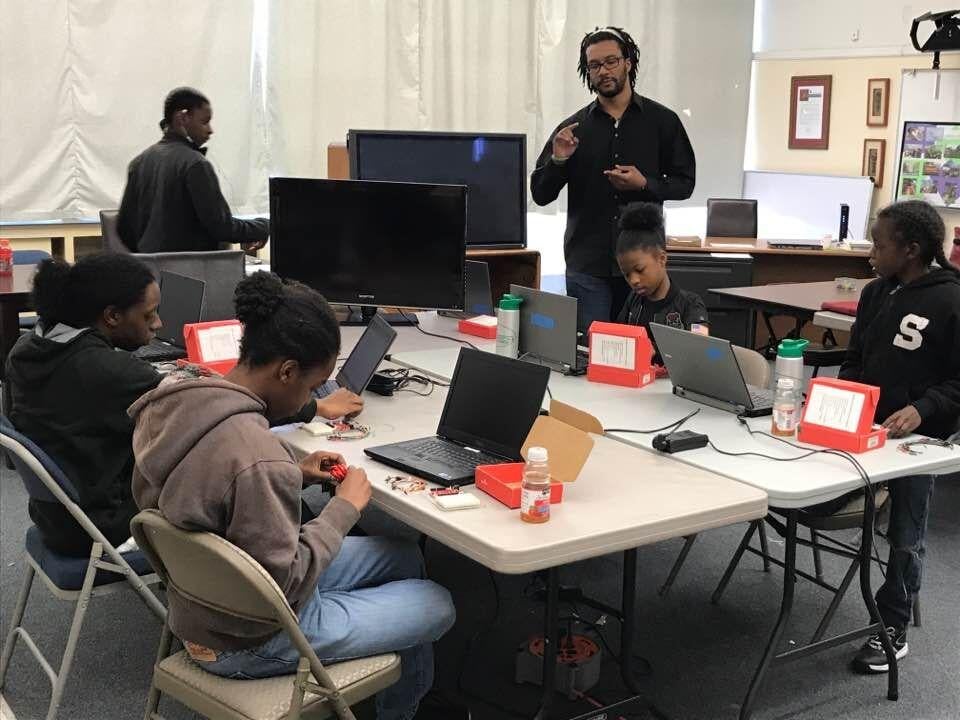Right in California’s agricultural heart, innovative nonprofit Green Tech Education and Employment is growing something other than crops – it’s cultivating Sacramento’s next generation of skilled workers.
Two months ago, Romani Hill, 18, applied for a farming job with Green Tech’s urban farm, a branch of the nonprofit. Despite being young, Hill has certificates of competency in an impressive array of trade skills, ranging from basic plumbing to PV-1 solar panel installation. Hill also presented his Occupational Safety and Health Administration card, demonstrating proficiency in construction and workplace safety. Because many people training to get OSHA cards are much older, when Hill’s employer at the urban farm saw his card, he stopped the interview and told him, “You got it. You got the job.”
The card allows Hill to skip basic job site training and get straight to work. Hill earned his OSHA card through Green Tech’s ambassador program when he was just 15 years old. He has since had seven jobs, including the urban farm.
Romani Hill, a 3-year Green Tech ambassador, credits Green Tech
with keeping him on the right path and being a source of lifelong
learning and self-betterment. Photo credit: Will Davis, Green
Tech Instructor.

Hill credits Green Tech with all his success. “I have a real leg up, all because of Green Tech. If it wasn’t for them, I wouldn’t have these skills and these jobs. And, I don’t have to go down the wrong path to get funds.”
A Double-Pronged Approach to Workforce Development
Green Tech prepares underserved youth like Hill for gainful employment in both traditional trades and emerging green industries. Green Tech’s students, or ambassadors, are youth and young adults, often not in school or working, hailing from traditionally marginalized sectors of society who experience difficulty finding high-paying, steady employment. Simeon Gant, founder of Green Tech, decided to offer opportunities to these youth by arming them with vocational, technical, and green skill sets with the goal of catalyzing them into a skilled, employable workforce.
Gant describes why he modeled Green Tech after high school shop classes. “Our workforce is aging out and there’s no one to replace them. In this 21st century, we need more kids to go into labor fields,” Gant says.
“Green Tech jumped out in 2008 and saw that void: we’re a community-based shop class, teaching our ambassadors the skills they will need to be gainfully employed members of our workforce,” Gant says.
Green Tech takes a double-pronged approach in growing these Sacramento youth into a skilled workforce, serving both Sacramento’s immediate and long-term economic needs. The trade skills introduced through Green Tech’s weekly classes – such as carpentry, construction and plumbing – ensure ambassadors will be prepared for today’s workforce, while the STEM skills – like coding, aquaponics and solar PV installation – position them to be qualified and ready to work in the green industries of the future.
Every Saturday, Hacker Lab hosts a coding class for Green Tech
ambassadors where students learn problem solving basics, how to
code and how to build a circuit. Photo courtesy of Alan Ware,
Green Tech Instructor.

The Need to Diversify and Green Our Economy
District 8 Councilmember Larry Carr credits Green Tech with diversifying and greening the local economic space. “Sacramento has been a government town for so long, and an agricultural town. Obviously, we have to diversify our employment base to shield us from the ups and downs of the economic cycle, and that’s what Green Tech is doing,” Carr says.
Because these new industries happen to be green, the benefits are twofold. “We only have one planet and if we don’t take care of it, there aren’t a lot of places to go,” he says.
District 1 County Supervisor Phil Serna echoes this need to green our economic space and highlights the economic potential. “We have [to be greener] because the future of the globe depends on it. And at the same time, why fight something like that when you can use it to your benefit economically, socially and educationally?”
Where There are Skilled Green Workers, Green Companies Will Come
young Green Tech ambassador puts together a circuit at Green
Tech’s Saturday coding class run by Hacker Lab. Photo courtesy of
Alan Ware, Green Tech

Serna emphasizes how a skilled, green workforce will attract more industries to the Capital Region. “When … prospective firms consider the nature of the workforce where they are going to relocate to, [they] want folks who can get up to speed very quickly, who don’t need months and months of training. …”
Gant agrees. “[If] companies can see that the workforce is strong, that we’re training and providing skilled, green workers, I believe they will come.”
He uses electric vehicle charging stations as an example: “Everyone says there aren’t enough charging stations. But listen to that – you just created a job! We have to build more charging stations – that’s a job! And that’s where Green Tech comes in: we want to train our youth to be ready to take those jobs when they come up, and to create this green collar workforce to show industries that we have skilled people here in Sacramento who can do the work and who want to do the work.”
Instructor Alan Ware teaches Green Tech ambassadors to code and
navigate Arduino circuit boards. Photo Courtesy of Alan Ware,
Green Tech Instructor.

The U.S. as a whole currently lacks a strong STEM workforce, according to a 2014 report by State Superintendent of Public Instruction Tom Torlakson’s STEM Task Force. Shortage of STEM education in schools, even in California, disadvantages students from STEM careers.
Nile Mittow and Alan Ware, engineers at Hacker Lab, a community partner with Green Tech, teach the actual technical skills to ambassadors. “Any high school that doesn’t offer engineering now is behind. The kids need to be introduced to the technology. We should be doing more [of] this.” Mittow says. Green Tech fills the gap by reinforcing basic critical thinking skills, introducing ambassadors to the cutting-edge technologies, and then teaching them how to build these technologies. And until schools adequately train Sacramento’s youth to work in and lead in these green fields, Green Tech will continue to do this work.
“Having Green Tech and more organizations like Green Tech will set our regional economy, and specifically the city and county of Sacramento, in a much better way.” Serna says. “We need this.”




Comments
The Green Tech folks do a wonderful job and we value our partnership with them to place their participants in jobs in the home building industry.
PhD education is tough and complex hence a very low number of students actually enroll in this program. However today with advancement of technology this degree program is far easier as compared to what it was years ago. PhD in Dubai (https://www.onlineuaeuniversit...) is one such example.
PhD education is tough and complex hence a very low number of students actually enroll in this program. However today with advancement of technology this degree program is far easier as compared to what it was years ago. PhD in Dubai (https://www.onlineuaeuniversit...) is one such example.